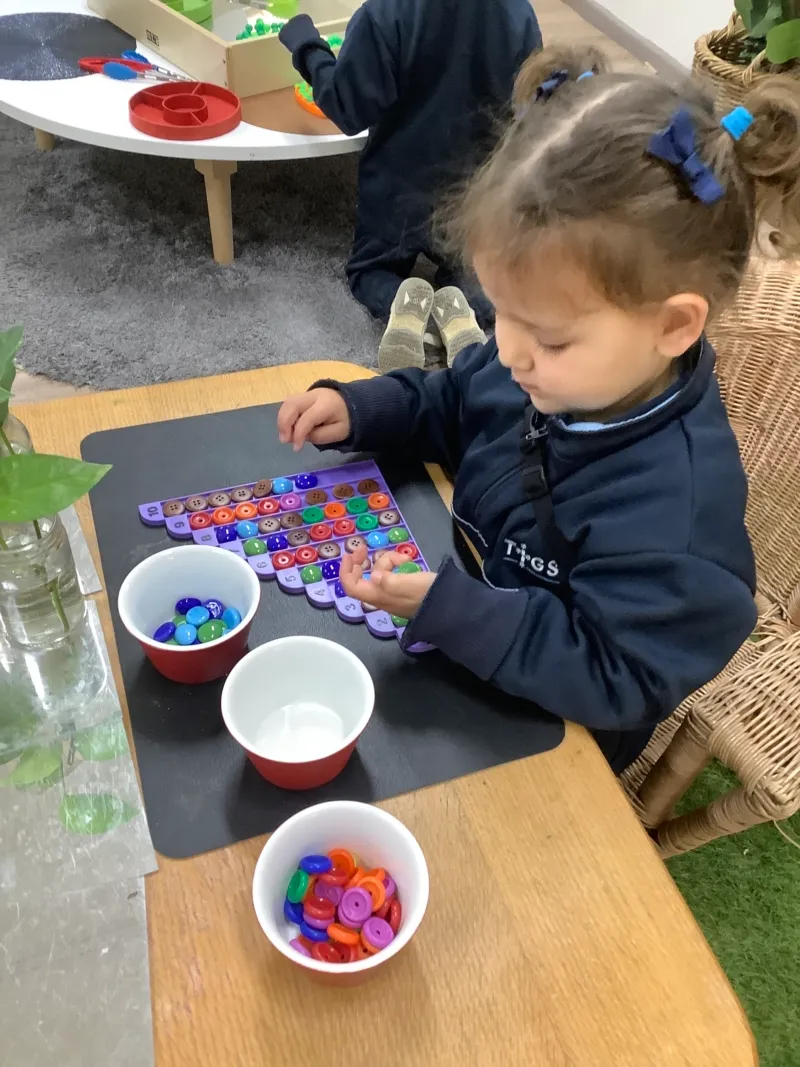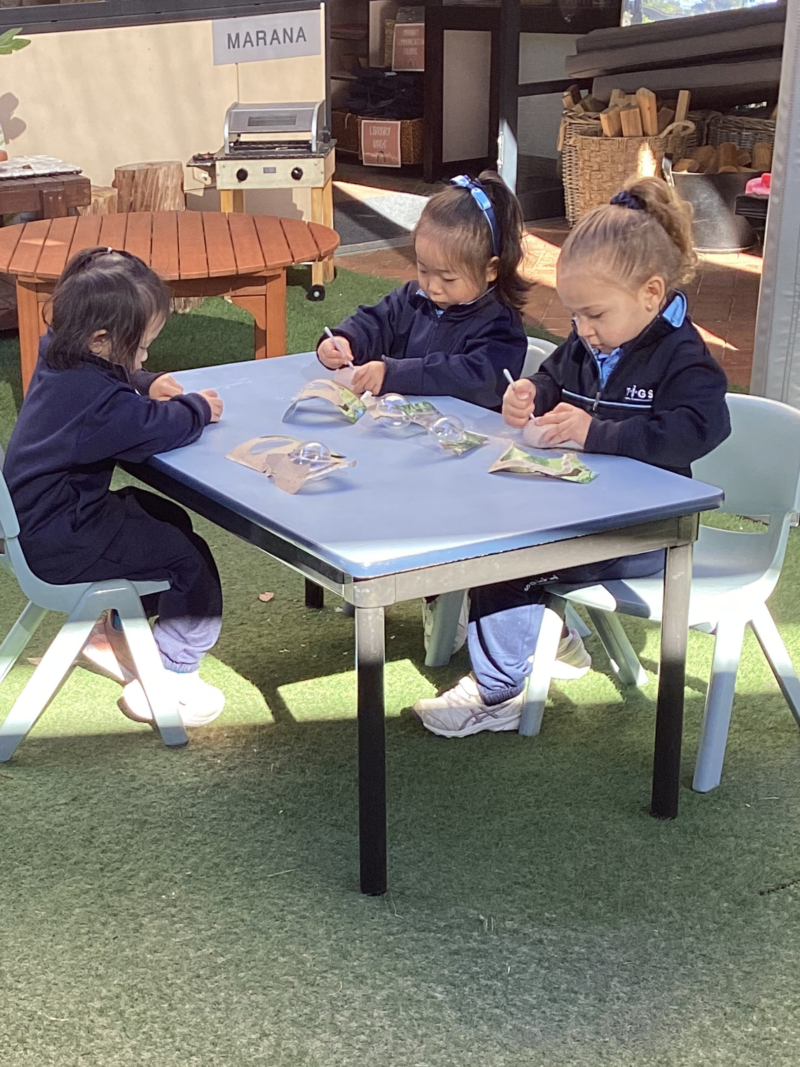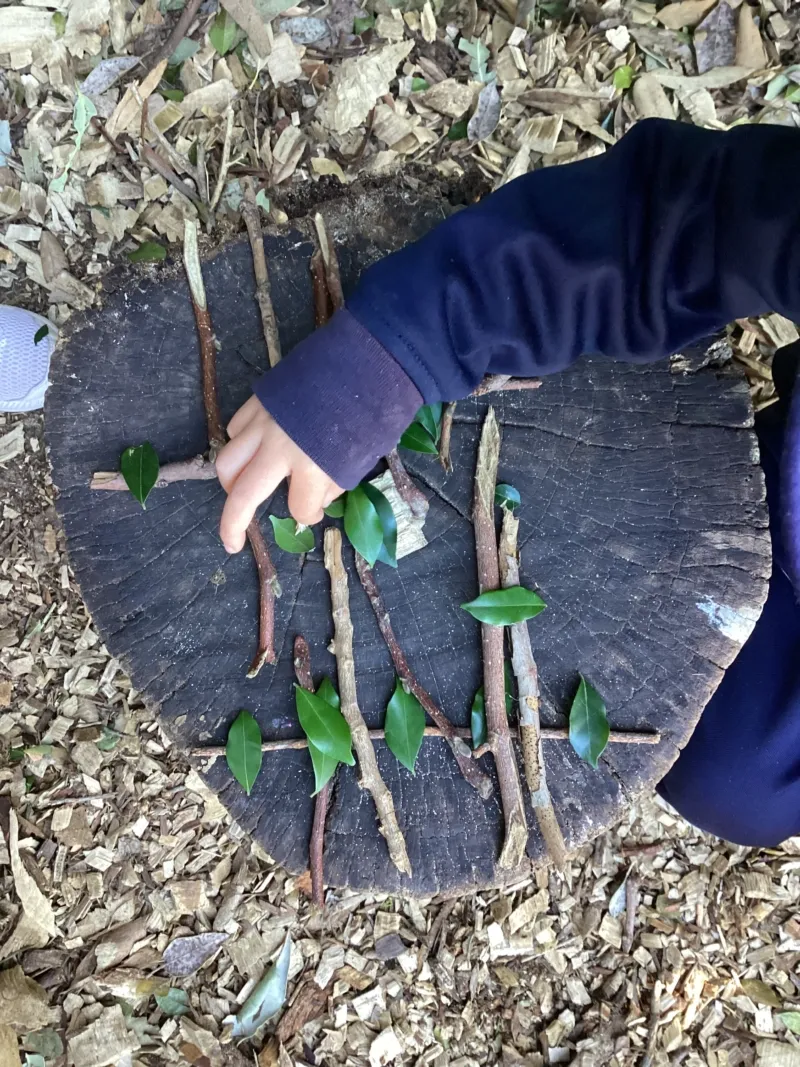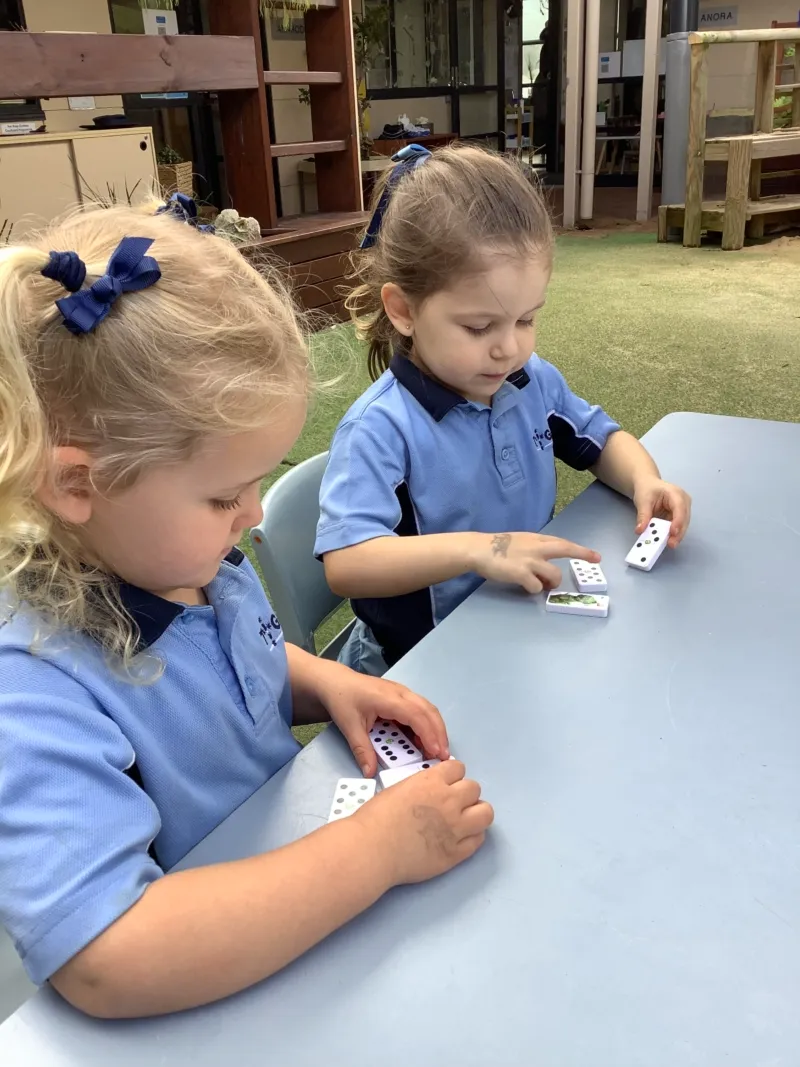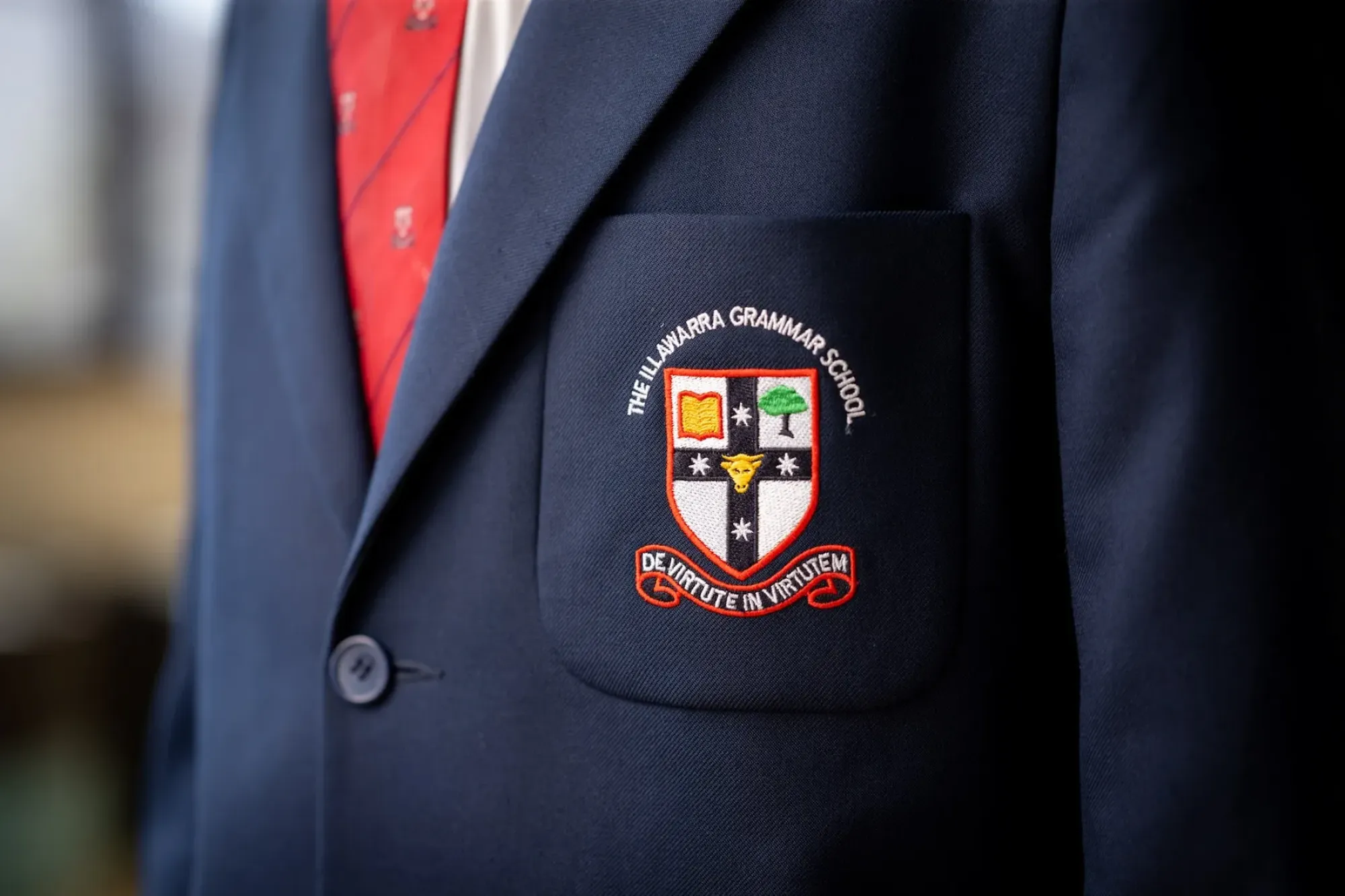
Hands on mathematics
Mathematics plays a crucial role in early childhood education, providing a strong foundation for cognitive development and problem-solving skills. By introducing mathematical skills at an early age children can develop critical thinking abilities, logical reasoning, and a deep understanding of numerical relationships. TIGS Prep children have been exploring Mathematics to help equip them with the essential life skills that are applicable in real world scenarios.
Cooinda
In Cooinda the children have been busy learning to count using one to one correspondence, counting purposefully and correctly, not rote counting or memorisation; rather truly understanding the meaning. Through our intentional learning environment, children have the opportunity to engage in mathematical learning through play. Puzzles involving counting and matching numerals are popular, and the children love learning the game of dominoes, counting up to six dots on each side and seeing if they had a match. Using small, coloured stickers to cover dots, counting sequentially as they covered each one, helped the children strengthen their fine motor skills and recognise the number they could count to. Incorporating the children’s developing knowledge of numerals was also incorporated into the environment through whiteboards with magnetic numbers and textas. The children shared their knowledge of numbers and counting as they wrote and drew their representations on the boards.
Elanora
The children have been playing dice games to support their counting skills, practicing the mathematical skills of one-to-one correspondence and the ability to count out a corresponding amount. The children have been rolling a choice of one or two dice, counting the spots, and then count out related corresponding pieces. Using mathematical skills in real scenarios, we have had lots of fun creating long caterpillars with a variety of loose parts for the body, placing colourful feathers onto birds, counting out cupcakes, cookies and cakes to make a tea party and using red buttons to make the petals for poppies. The children have the opportunity to play these games as part of small group experiences, then enhance their number and counting skills during further play and intentional teaching, revisiting the experiences in their everyday play.
Marana
During Term II in Marana the children joined Dirt Girl and Costa the Garden Gnome from ABC Kids Education to discover that mathematics is hiding around every corner, especially within a child’s natural world. In Week 2 the children enjoyed completing the Mandala Challenge. Exploring the natural world, the children went on a nature hunt looking for natural products outdoors. At the completion of their hunt the children were encouraged to create a pattern with all their natural products.
Amaroo
The children have been focusing on learning about numbers and shapes. The children are learning to recognise numbers and count from 1 to 10 using songs, games and art activities. The children particularly enjoy singing lots of number songs such as 5 Little Ducks and 10 Cheeky Monkeys helping them add, subtract, tally numbers and collect data.
The children have also created numbers using clay, pebbles, loose parts and play dough, enhancing the children’s number recognition and memory recall skills. Amaroo have been exploring different shapes in the environment, as well as exploring books about buildings and architecture. Amaroo children have had opportunities to recreate shapes using art objects and loose parts to count how many sides different objects have and explore a range of mathematical concepts of size, shape, seriation and patterning.
In our play spaces, the opportunities and benefits of incorporating mathematics into early childhood education are vast and endless, and meaningful real world experiences for young children.
